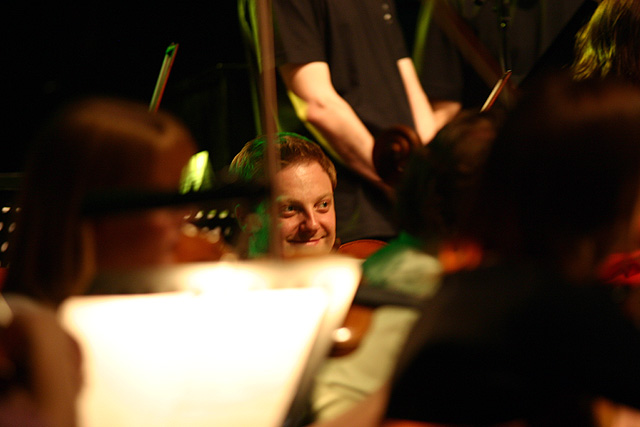So, after weeks of speculation, frantic phonecalls to county hall, printing off my electoral registration papers, finding a British witness who isn't a member of my family, the threat of postal strikes and the prospect of another Florida 2000, there isn't going to be a general election after all. It's quite a relief, not least because of the potential debacle over postal votes from overseas: would there be time to send them out and return them by the deadline given
the current situation with the postal service?
Hindsight, of course, is a fine thing, but only if we can look back at events without distorting the facts to suit our own agendas. In this respect, the rhetoric coming out of the Conservative Party this week is most interesting indeed, and highly revealing.
Who
actually wanted this election to happen, I began to wonder. It certainly wasn't anybody within the Labour Party. From Labour's point of view, the only conceivable reason for holding an election only two years after the last one would be to give Mr Brown a mandate of his own, one that doesn't come with the uncomfortable baggage bequeathed him by Mr Blair. In all honesty, the likely outcome for Brown would have been
an even larger majority than he has at the moment; Old Labour voters are more inclined to vote for Brown than for Blair. But who
really wanted this election? It seems rather spurious of Mr Cameron to accuse the PM of "bottling it", when all along it was the Tories goading him to hold an election he neither wanted nor needed.
With this in mind, Mr Cameron's recent comments in the House of Commons all seem rather mystifying:
You are the first prime minister in history to flunk an election because you thought you could win it. [...] Do you realise what a phoney you now look? Have you found a single person who believes your excuses for cancelling the election?
I for one fail to see how the PM could "cancel" an election which he had never once "announced". Is your memory so bad, or are we being slightly disingenuous with the facts, Mr Cameron? You may be well advised to remember that electorate's memory is not as short or failing as your own.
Another hilarious upshot of last week's alleged election fever is the Nuspeak now coming out of Conservative party HQ. "Bring it on", bellowed Mr Cameron, and, in what seems like a paraphrase of a grammatical construction common only to porn films, "call that election"! Brown is, apparently, a "phoney" for "flunking" the election. Where is this all going to end? Before we know it, the Tory manifesto will be available in txtspk to appeal to all those underprivileged people who can't spell properly. It's too absurd for words... I did giggle listening to interviews of the Tory faithful immediately after Cameron's "virtuoso" speech at the conference:
– What are your feelings about a snap election?
– Bring it on, I say!
Sadly, as I heard this all on the radio, I didn't have the pleasure of witnessing for myself as the blue-rinse brigade of affluent, upper-middle-class England gushed with phrases more common in the "broken society" they so wish to mend.
Polly Toynbee, who shadow minister cum Tory image consultant Greg Clark suggested
should replace Winston Churchill as one of the key social commentators of Nu-Toryism, wrote
a marvellous column in yesterday's Guardian, in which she points out that Brown must not spend the rest of this term playing it safe. He has leadership skills, but now he has to show people what he can do with them. He has to demonstrate that cutting taxes isn't the answer to all our ills – Mr Cameron, are you listening?
In offering £3.5bn in tax cuts (exemption from inheritance tax etc, thus making the rich richer. "But only millionaires will pay". Why doesn't this thought comfort me?), the Tories might as well have pledged a commitment to longer hospital waiting lists, less funding for schools (not to mention the arts), worsened public transport in areas of the country that badly need more investment... Shall I go on?
The deputy leadership elections did briefly throw up some passion - revulsion at excess at the top, the word "inequality" spoken out loud, debates that touched on fairness in schools admissions, faith schools and all the barriers to social mobility. That's what Labour is for. The Tory masterplan for cutting inheritance tax by £3.5bn while taxing non-domiciles £25,000 each has drawn a key battle line. Labour may have to give assurances that the inheritance tax threshold will never reach more than the current 6% richest, but the principle remains. It will take hard work to remind people what tax is for, why it is a public good and not a burden, how it is the agent of social justice. Those ideas have been allowed to atrophy in the last decade. Labour has redistributed more than any government to the poor, at least slowing the rate of increase in inequality - but by never framing the argument in ideological terms, a generation has never heard how inheritance tax helped shape social progress in the last 100 years.
Every bit as interesting as the article itself are the comments people have posted in response. It seems that a lot of people read Toynbee's columns in order to disagree with them, much as I often read Finland for Thought. It's good to be reminded why you think the way you do; anger can be a very useful tool. One comment on Toynbee's article stood out:
I have to say, Polly, that when I read your columns these days, there's a distinct aroma of Animal Farm: "You don't want Mr Jones back, do you?" The idea that the big, bad Tories will be markedly worse for the poor than Gordon Brown is a puerile fantasy. I don't know if you believe it or if it's designed to frighten Guardian readers back into sullen submission to New Labour [...] [Brown is] obsessed by [sic] courage in the same way that some poor people are obsessed by money: the lack of it defines their lives.
That's beautiful – poor people are obsessed
with money. Of course, it's easy to ridicule "the poor" from a life of luxury. David Cameron may make overtures to the middle classes by promising extensive yet unrealistic tax cuts, talking about the abolition of grammar schools, advocating a more inclusive definition of "the family" (to include, for instance, same-sex couples), but there is a gulf between what Mr Cameron says in public and what the rest of the party faithful truly believe. Essentially he and other "moderate" Conservatives are banging their heads against a brick wall, preaching to the unconvertible. The Tory party does not want to be modernised; Tories do not believe in freedom of opportunity for all (the grammar schools debate), they do not believe that a family can also consist of two women or two men. It is comments like this that make the question of who to vote for blindingly obvious: we
do not want Mr Jones back, thank you very much. Too much progress has been made since 1997 for it all to be undone by, as Toynbee puts it, "rich boys protecting their own". I'll let the marvellous Ms Toynbee have to final word:
Some things don't cost money, only bravery. Brown yesterday left open the scope of the coming constitutional reform. To give away his right to choose the timing of elections might feel a blessed relief after this week - and so would a sharp curb on party spending. The spectacle of one Tory millionaire swaying votes in a few marginals to buy the next election is all the evidence anyone needs of the democratic dysfunction of party funding and of an electoral system that hinges on 200,000 bored swing voters. Jack Straw has already led the way in supporting the alternative vote, giving voters the right to put their choices in 1, 2, 3 order, a first step towards fairer voting: it could be done for the next election. Better by far for Labour to do it before a hung parliament forces them.








